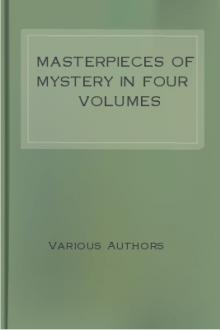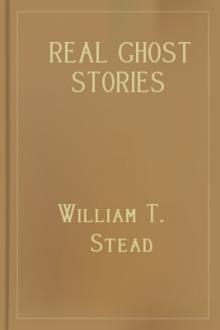Varney the Vampire; Or, the Feast of Blood by Prest and Rymer (ereader iphone .txt) 📗

- Author: Prest and Rymer
Book online «Varney the Vampire; Or, the Feast of Blood by Prest and Rymer (ereader iphone .txt) 📗». Author Prest and Rymer
Nothing was easier than to procure a stake from the garden in the rear of the premises; but it was one thing to have the means at hand of carrying into effect so dreadful a proposition, and another actually to do it.
For the credit of human nature, we regret that even then, when civilisation and popular education had by no means made such rapid strides as in our times they have, such a proposition should be entertained for a moment: but so it was; and just as an alarm was given that a party of the soldiers had reached the inn and had taken possession of the doorway with a determination to arrest the rioters, a strong hedge-stake had been procured, and everything was in readiness for the perpetration of the horrible deed.
Even then those in the room, for they were tolerably sober, would have revolted, probably, from the execution of so fearful an act; but the entrance of a party of the military into the lower portion of the tavern, induced those who had been making free with the strong liquors below, to make a rush up-stairs to their companions with the hope of escaping detection of the petty larceny, if they got into trouble on account of the riot.
These persons, infuriated by drink, were capable of anything, and to them, accordingly, the more sober parties gladly surrendered the disagreeable job of rendering the supposed vampyre perfectly innoxious, by driving a hedge-stake through his body—a proceeding which, it was currently believed, inflicted so much physical injury to the frame, as to render his resuscitation out of the question.
The cries of alarm from below, joined now to the shouts of those mad rioters, produced a scene of dreadful confusion.
We cannot, for we revolt at the office, describe particularly the dreadful outrage which was committed upon the corpse; suffice it that two or three, maddened by drink, and incited by the others, plunged the hedge-stake through the body, and there left it, a sickening and horrible spectacle to any one who might cast his eyes upon it.
With such violence had the frightful and inhuman deed been committed, that the bottom of the coffin was perforated by the stake so that the corpse was actually nailed to its last earthly tenement.
Some asserted, that at that moment an audible groan came from the dead man, and that this arose from the extinguishment of that remnant of life which remained in him, on account of his being a vampyre, and which would have been brought into full existence, if the body had been placed in the rays of the moon, when at its full, according to the popular superstition upon that subject.
Others, again, were quite ready to swear that at the moment the stake was used there was a visible convulsion of all the limbs, and that the countenance, before so placid and so calm, became immediately distorted, as if with agony.
But we have done with these horrible surmises; the dreadful deed has been committed, and wild, ungovernable superstition has had, for a time, its sway over the ignorant and debased.
CHAPTER XLIX. THE MOB'S ARRIVAL AT SIR FRANCIS VARNEY'S.—THE ATTEMPT TO GAIN ADMISSION.The soldiery had been sent for from their principal station near the churchyard, and had advanced with some degree of reluctance to quell what they considered as nothing better nor worse than a drunken brawl at a public-house, which they really considered they ought not to be called to interfere with.
When, however, the party reached the spot, and heard what a confusion there was, and saw in what numbers the rioters were assembling, it became evident to them that the case was of a more serious complexion than they had at first imagined, and consequently they felt that their professional dignity was not so much compromised with their interference with the lawless proceedings.
Some of the constabulary of the town were there, and to them the soldiers promised they would hand what prisoners they took, at the same time that they made a distinct condition that they were not to be troubled with their custody, nor in any way further annoyed in the business beyond taking care that they did not absolutely escape, after being once secured.
This was all that the civil authorities of the town required, and, in fact, they hoped that, after making prisoners of a few of the ringleaders of the riotous proceedings, the rest would disperse, and prevent the necessity of capturing them.
Be it known, however, that both military and civil authorities were completely ignorant of the dreadful outrage against all common decency, which had been committed within the public-house.
The door was well guarded, and the question now was how the rioters were to be made to come down stairs, and be captured; and this was likely to remain a question, so long as no means were adopted to make them descend. So that, after a time, it was agreed that a couple of troopers should march up stairs with a constable, to enable him to secure any one who seemed a principal in the riot.
But this only had the effect of driving those who were in the second-floor, and saw the approach of the two soldiers, whom they thought were backed by the whole of their comrades, up a narrow staircase, to a third-floor, rather consisting of lofts than of actual rooms; but still, for the time, it was a refuge; and owing to the extreme narrowness of the approach to it, which consisted of nearly a perpendicular staircase, with any degree of tact or method, it might have been admirably defended.
In the hurry and scramble, all the lights were left behind; and when the two soldiers and constables entered the room where the corpse had lain, they became, for the first time, aware of what a horrible purpose had been carried out by the infuriated mob.
The sight was one of perfect horror, and hardened to scenes which might strike other people as being somewhat of the terrific as these soldiers might be supposed to be by their very profession, they actually sickened at the sight which the mutilated corpse presented, and turned aside with horror.
These feelings soon gave way to anger and animosity against the crowd who could be guilty of such an atrocious outrage; and, for the first time, a strong and interested vengeance against the mob pervaded the breasts of those who were brought to act against it.
One of the soldiers ran down stairs to the door, and reported the scene which was to be seen above. A determination was instantly come to, to capture as many as possible of those who had been concerned in so diabolical an outrage, and leaving a guard of five men at the door, the remainder of the party ascended the staircase, determined upon storming the last refuge of the rioters, and dragging them to justice.
The report, however, of these proceedings that were taking place at the inn, spread quickly over the whole town; and soon as large a mob of the disorderly and the idle as the place could at all afford was assembled outside the inn.
This mob appeared, for a time, inertly to watch the proceedings. It seemed rather a hazardous thing to interfere with the soldiers, whose carbines look formidable and troublesome weapons.
With true mob courage, therefore, they left the minority of their comrades, who were within the house, to their fate; and after a whispered conference from one to the other, they suddenly turned in a body, and began to make for the outskirts of the town.
They then separated, as if by common consent, and straggled out into the open country by twos and threes, consolidating again into a mass when they had got some distance off, and clear of any exertions that could be made by the soldiery to stay them.
The cry then rose of "Down with Sir Francis Varney—slay him—burn his house—death to all vampyres!" and, at a rapid pace, they proceeded in the direction of his mansion.
We will leave this mob, however, for the present, and turn our attention to those who are at the inn, and are certainly in a position of some jeopardy. Their numbers were not great, and they were unarmed; certainly, their best chance would have been to have surrendered at discretion; but that was a measure which, if the sober ones had felt inclined to, those who were infuriated and half maddened with drink would not have acceded to on any account.
A furious resistance was, therefore, fairly to be expected; and what means the soldiery were likely to use for the purpose of storming this last retreat was a matter of rather anxious conjecture.
In the case of a regular enemy, there would not, perhaps,





Comments (0)